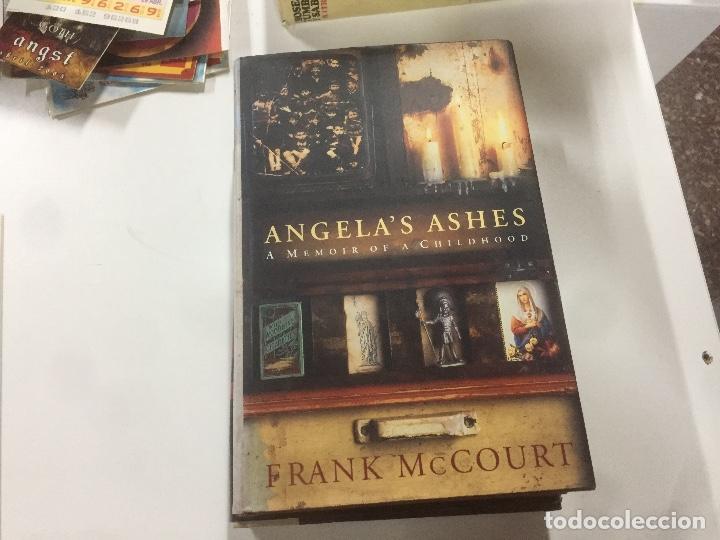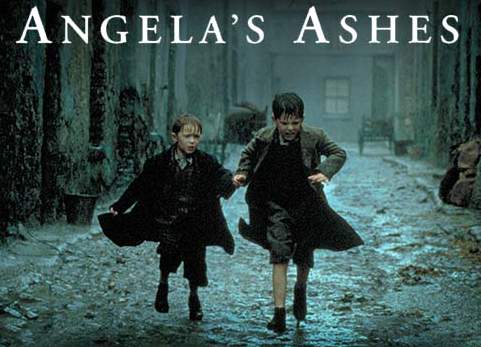1930 – 2009
Frank McCourt was born in Brooklyn — he would later, much later, memorably describe the scene of his conception in his memoir — but he grew up in Ireland. His parents were both Irish immigrants, and they moved back there, to Limerick, in an effort to stay ahead of McCourt’s father’s drinking problem. They didn’t succeed. Malachy, Frank’s father, worked intermittently as a laborer, but he drank constantly.
McCourt was the first of seven children whom their mother Angela cared for indomitably. But even she was no match for the grinding poverty that Malachy’s drinking brought upon the family, and for the cold and damp of Limerick. They became so poor that three of the children — twin brothers and a baby girl — died of disease and malnutrition. «It was, of course, a miserable childhood,» McCourt famously wrote in Angela’s Ashes, in a passage that’s worth quoting in full. «The happy childhood is hardly worth your while. Worse than the ordinary miserable childhood is the miserable Irish childhood, and worse yet is the miserable Irish Catholic childhood. People everywhere brag and whimper about the woes of their early years, but nothing can compare with the Irish version: the poverty; the shiftless loquacious father; the pious defeated mother moaning by the fire; pompous priests, bullying schoolmasters; the English and all the terrible things they did to us for 800 long years.»
Although he kept a journal and dabbled in journalism and the theater, McCourt spent most of the next 30 years teaching English and creative writing in New York City schools for a modest salary. He had a natural flair for it. On his very first day in the classroom, one of his young charges threw a sandwich at another kid. McCourt picked it up and ate it in front of the class, while the students watched, stunned. He had taught his first lesson: an object lesson in what it means to survive starvation.
The result was his memoir Angela’s Ashes, which appeared in 1996, when McCourt was 66. The book told the story of his early years in a voice purged of anger and bitterness and self-pity. In an extraordinary act of forgiveness, he wrote about his father with humor and even compassion. Angela’s Ashes was published quietly, as the personal memoir of an Irish childhood. «My dream was to have a Library of Congress catalog number, that’s all,» McCourt said. But it became first a critical sensation, then a runaway best seller. In 1997 McCourt won the National Book Critics Circle Award and the Pulitzer Prize.
[Lev Grosman, Time 2009]• Chapter One 
My father and mother should have stayed in New York where they met and married and where I was born. Instead, they returned to Ireland when I was four, my brother, Malachy, three, the twins, Oliver and Eugene, barely one, and my sister, Margaret, dead and gone.
When I look back on my childhood I wonder how I survived at all. It was, of course, a miserable childhood: the happy childhood is hardly worth your while. Worse than the ordinary miserable childhood is the miserable Irish childhood, and worse yet is the miserable Irish Catholic childhood.
People everywhere brag and whimper about the woes of their early years, but nothing can compare with the Irish version: the poverty; the shiftless loquacious alcoholic father; the pious defeated mother moaning by the fire; pompous priests; bullying schoolmasters; the English and the terrible things they did to us for eight hundred long years.
Above all — we were wet.
Out in the Atlantic Ocean great sheets of rain gathered to drift slowly up the River Shannon and settle forever in Limerick. The rain dampened the city from the Feast of the Circumcision to New Year’s Eve. It created a cacophony of hacking coughs, bronchial rattles, asthmatic wheezes, consumptive croaks. It turned noses into fountains, lungs into bacterial sponges. It provoked cures galore; to ease the catarrh you boiled onions in milk blackened with pepper; for the congested passages you made a paste of boiled flour and nettles, wrapped it in a rag, and slapped it, sizzling, on the chest.
From October to April the walls of Limerick glistened with the damp. Clothes never dried: tweed and woolen coats housed living things, sometimes sprouted mysterious vegetations. In pubs, steam rose from damp bodies and garments to be inhaled with cigarette and pipe smoke laced with the stale fumes of spilled stout and whiskey and tinged with the odor of piss wafting in from the outdoor jakes where many a man puked up his week’s wages.
The rain drove us into the church — our refuge, our strength, our only dry place. At Mass, Benediction, novenas, we huddled in great damp clumps, dozing through priest drone, while steam rose again from our clothes to mingle with the sweetness of incense, flowers and candles.
Limerick gained a reputation for piety, but we knew it was only the rain. . .
¤ Read another excerpt ↓ from Chapter 4
→http://www.bookbrowse.com/excerpts/book_number/202/angelas-ashes ←
◊ Frank McCourt reads ↓ a passage from chapter #13
One day at the library, the librarian gives Frank a book called Butler’s Lives of the Saints. The librarian, Miss O’ Riordan, is so impressed by Frank’s supposed religious zeal that she writes to congratulate Angela on her son.
… It’s raining so hard one day, Miss O’ Riordan, the librarian says, «Don’t go out in that rain or you’ll ruin the books you’re carrying. Sit down over there and behave yourself. You can read all about the saints while you’re waiting.»
There are four big books, Butler’s Lives of the Saints. I don’t want to spend my life reading about saints, but when I start I wished the rain would last forever. Wherever you see pictures of saints, men or women, they’re always looking up to heaven, whether there are clouds filled with little fat angels carrying flowers or herbs giving praise. My uncle P. says he can’t think of a single saint in heaven he wants to sit down and have a pint with.
The saints in these books are different. These are stories about virgins, martyrs, virgin martyrs, and they’re worse than any horror film at the Lyrics Cinema. I had to look in the dictionary to find out what a ‘virgin’ is. I know the Mother of God is the Virgin Mary, and they call it that because she doesn’t have a proper husband, only poor old Saint Joseph. In the Lives of the Saints the virgins are always getting into trouble and I don’t know why.
The dictionary says, «‘virgin’ = woman, usually a young woman, who is and remains in a state of inviolate chastity.» Now I have to look up ‘inviolate chastity’. And all I can find here is that ‘inviolate’ means not violated and ‘chastity’ means chaste, and that means pure from lawful unlawful sexual intercourse; now I have to look up ‘intercourse’. And that leads to ‘copulation’; the union of the sexes in the act of generation. I don’t know what that means, and I’m too weary going from one word to another in this heavy dictionary which leaves me on a wild goose chase, from this word to that word, and all because the people who wrote the dictionary don’t want the likes of me to know anything. All I want to know is where I came from, but if you ask anyone, they tell you, «Ask someone else to send you from word to word.»
All these virgin martyrs are told by the Roman judges they had to give up their faith and accept the Roman gods, but they say, «Nay.» That’s how virgin martyrs talk, «Nay.» And the judges have them tortured and killed. My favourite is Saint Christina the Astonishing, who takes ages to die. The judge says, «Cut off her breast.» And when they do she throws it at him and he goes deaf and blind. Another judge is brought on the case, and he says, «Cut off the other breast»– the same happened. They tried to kill her with arrows, but they just bounced off and killed the soldiers who shot them. They tried to boil her in oil, but she rocks in the bag and takes a nap for herself. Then the judges get fed up and have her head cut off – that does the job. The feast of Saint Christina the Astonishing is the 24th of July and I think I’ll keep that for myself, along with Francis of Assisi, deceased the 4th of October.
The librarian says, «You have to go home now. The rain has stopped.» And when I’m going out the doors she calls me back. She wants to write a note to my mother, and she doesn’t mind one bit if I read it. The note said:
‘Dear Mrs McCourt, Just when you think Ireland is gone to the dogs altogether, you find a boy sitting in the library so absorbed in the Lives of the Saints he doesn’t realise the rain has stopped. And you have to drive him away from the aforesaid lives. I think Mrs McCourt you might have a future priest on your hands – and I light a candle in hopes it comes true. I remain yours truly, Catherine O’ Riordan, Assistant Librarian.’◊ Angela’s Ashes ↓ Movie CLIP
Malachy (Robert Carlyle) comes home drunk and offers his sons Friday pennies.Cast: Andrew Bennett, Robert Carlyle, Joe Breen, Shane Murray-Corcoran
Director: Alan Parker; Screenwriter: Frank McCourt, Laura Jones, Alan Parker
Film Description: Based on the Pulitzer Prize-winning memoir by Frank McCourt, Angela’s Ashes is an alternately funny and heartbreaking look at growing up in Ireland. Born in Brooklyn, NY, young Frank (Joe Breen) moves at an early age to Limerick, Ireland, with his parents Angela (Emily Watson) and Malachy (Robert Carlyle), who have been unable to support their family in America and are hoping for better prospects in their home country. But things hardly improve once they settle in Limerick; illness and death are commonplace in Limerick, and Malachy’s drinking and inability to hold a job make matters worse.
Angela’s Ashes was directed by Alan Parker, who previously looked at Irish life in The Commitments (1991)




this is very helpful information delivered with wit and style.http://www.acertemail.com
Very interesting subject , thanks for posting .
Angela’s Ashes is one of my many fatviroe books; and one of my fatviroe audio books as well. If you love the book but never tried listening to the audio version of it, I highly recommend it. It’s narrated by the author and it’s so refreshing to hear it with his native brogue and his abilities of retelling of his stories.
Really excellent visual appeal on this web site , I’d rate it 10 10.
I want to to thank you for this wonderful read!! I definitely loved every bit of it. I’ve got you saved as a favorite to check out new things you post…